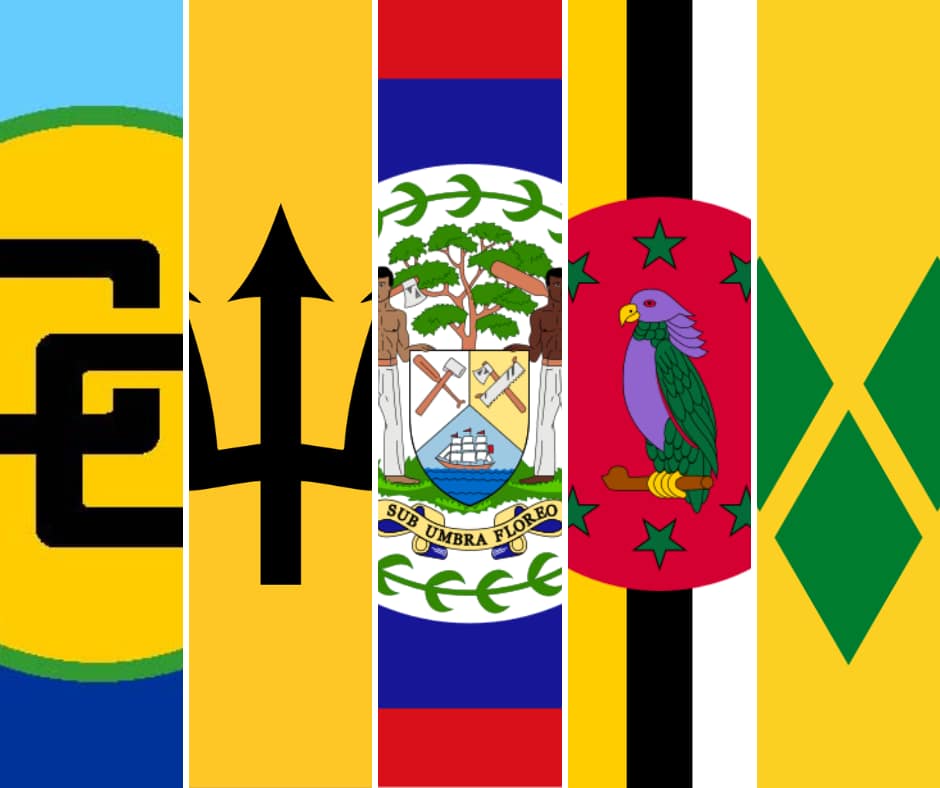
J’Moul Francis BA Law (TalTech), LLM (UCL Laws), (EU Law, Competition Law, and International Law); ERASMUS Exchange; Antigua and Barbuda Commonwealth Scholar 2018/2019; 2025 UN United Nations Regional Courses in International Law, Latin America and the Caribbean Alumnus; 2023 US State Department International Visitor Leadership Programme (IVLP) Alumnus; Legal Commentator. The views expressed are entirely his own.
On 1 October 2025, the Caribbean integration project took a significant step forward, allowing nationals of Barbados, Belize, Dominica, and St Vincent and the Grenadines to enjoy the right to live, work, study, and reside indefinitely in each other’s countries without requiring work or residence permits. This exercise of full free movement will, of course, require supporting amendments to domestic legislation within the participating states.
The new venture crystallised from the Enhanced Cooperation in Free Movement, tabled at the 49th Regular Meeting of CARICOM Heads of Government in Montego Bay earlier this year. At this Conference, leaders authorised four (4) member states to move ahead with what they described as “Full Free Movement”. The significance of this moment cannot be overstated: it marks a historic shift in policy and the tangible realisation of a vision that has inspired Caribbean leaders since the earliest days of federation and independence.
The Transformation of An Aspiration
For decades, Article 45 of the Revised Treaty of Chaguaramas (RTC) stood as an aspirational North Star: “Member States commit themselves to the goal of free movement of their nationals within the Community.” While this provision is deemed aspirational rather than a provision extending rights, the CCJ, however, in Myrie, notes that the right of free movement of persons “has to a great extent already been enshrined and fleshed out in the RTC itself”. The Court went on to explain the limitation by way of example in Article 46 RTC, which deals with the treaty right of free movement for ‘Skilled Community Nationals’.
Over time, the goal outlined in Article 45 has blossomed little by little, through the 2007 Conference Decision, which entitles CARICOM nationals upon arrival to an automatic, definite stay of six (6) months, subject to objective restrictions. Thereafter, we saw the expansion and refinement of the categories of skilled nationals in Article 46 RTC by decisions of Conferences- Nurses, Teachers, and Artisans with a CVQ (2006); Domestic Workers (2009); Agricultural Workers, Beauty Service Practitioners, and Barbers (2019); and Aviation personnel (2025). It is worth noting that some member states opted out, albeit for a limited time, from certain expanded categories, as aspirations have often been tempered by the realities of sovereignty and domestic concerns.
Nonetheless, Article 45 RTC should be read and understood as a destination, i.e., a point on the horizon to which the CARICOM integration project steadily sails. And, with the new arrangement under the Enhanced Cooperation framework, there is now evidence that some members are ready to alight at the final destination, even if the rest of the Community is not yet willing to do so. Particularly for Barbados, despite its history which gave rise to the Myrie case, this new reality, announced by Prime Minister Mia Mottley, transforms that aspiration into a tangible, functioning reality for these four nations. It moves free movement from a technical right for the skilled few to a fundamental principle for all their citizens.
From Paper to Person, the Practicalities

The mechanics, as outlined by PM Mottley in a national address, are elegantly simple: present a passport, be registered, and you can begin a new life of opportunities. This right to work without a permit, access education for your children, and receive healthcare is what breathes life into the concept of “CARICOM citizenship”. It enables a person to function as a full member of society, both within and across borders, i.e., to open a bank account, pay taxes, and contribute not only to the domestic economy but also to the broader community.
Free movement, as refined by the Caribbean Court of Justice (CCJ) in the landmark Myrie case and its Advisory Opinion on the Right to Free Movement, is not a free-for-all. It is buttressed by sensible safeguards such as refusals of entry, depending on whether one is deemed an “undesirable person” or likely to become a public charge. Domestic legislation, in a way, unpacks who is an “undesirable person”, i.e., persons deemed by Cabinet Order following a serious conviction, classified as prohibited immigrants, or engaged in activities prejudicial to security, public health, morality, or good government (for example: s22, Antigua and Barbuda Immigration and Passport Act 2024).In line with the CCJ’s guidance, refusals must still be exercised with accountability, i.e., with prompt written reasons and effective access to and means of redress.
Current and Future Lessons
To many in the Eastern Caribbean, full free movement will feel familiar. Citizens of the OECS Protocol States already move and work freely. They can even travel with a driver’s licence or voter’s card instead of a passport, and their spouses and dependents enjoy “contingent rights,” including access to healthcare, education, and social security. The OECS’ reality proves that free movement is also possible in small island contexts. It demonstrates that integration can foster deeper social and cultural bonds while enhancing economic productivity.
Moreover, the success of this new juncture in CARICOM integration now hinges on diligent implementation of measures beyond mere legislation. The participating states must build the necessary foundations and mechanisms, which include enhanced digitalisation of immigration and registration to lessen the friction of movement and make greater investments in education, healthcare, and social infrastructure to absorb new residents. Further, economies must be bolstered across key sectors to productively employ newcomers, accommodate new entrepreneurs, and robustly support talent recruitment and capacity development.
Critically, this freedom must be safeguarded by actively policing discrimination and xenophobia, ensuring that contingent rights to education, healthcare, and other public services and benefits are a lived reality, not just a legal promise. Governments must also prepare for complex long-term questions, establishing frameworks to support individuals who become non-economically active, and, most profoundly, grappling with the question of political representation. If one lives, works, and pays taxes in a community, should they not have a voice in its governance?
In conclusion, this bold step must be guided by both hope and prudence. While the pioneering states navigate the practical challenges of implementation, their journey represents a profound choice for regional openness against a global tide of isolation. More so, this shows that our Caribbean, at least the coalition of the willing, still chooses openness. It is a living, political laboratory for the dreams of our founding generation, transforming the abstract ideal of a Caribbean Community into a tangible experience for our citizens. Their voyage is a test for the entire Community; as they set sail, the hope is that others will support and soon follow. The success of this path is not merely administrative, but the essential foundation upon which the edifice of a truly unified CARICOM will be built, charting a course toward our shared Caribbean destiny.
Advertise with the mоѕt vіѕіtеd nеwѕ ѕіtе іn Antigua!
We offer fully customizable and flexible digital marketing packages.
Contact us at [email protected]
















This is a major mistake by PM Motley. Mass immigration has destroyed Antigua, and it’ll do the same to Barbados. Violent aggressive criminals will run riot.
Comments are closed.